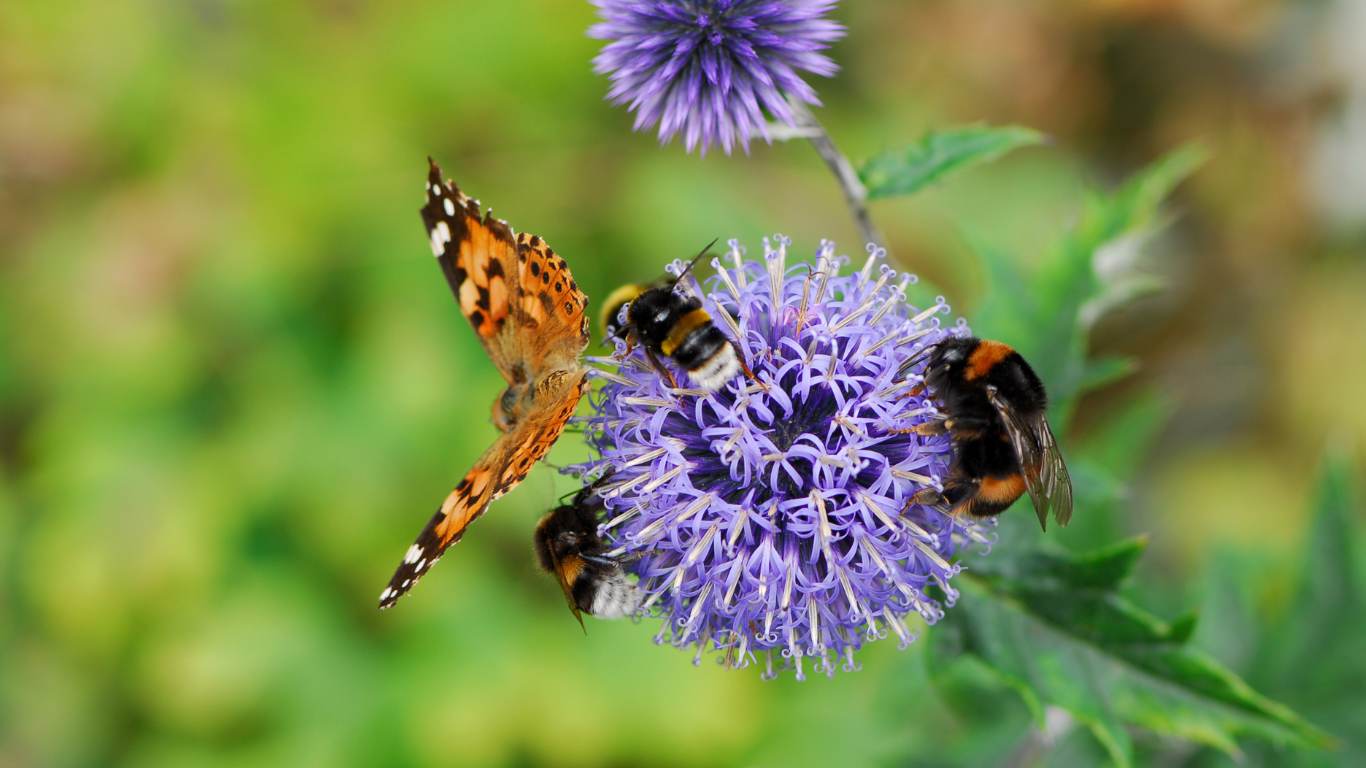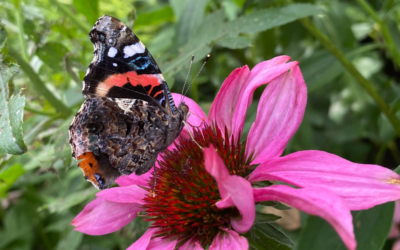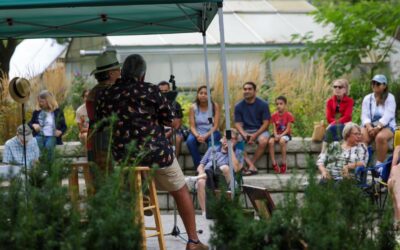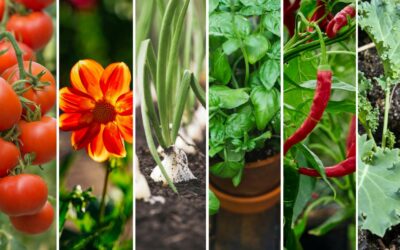Celebrating Pollinator Week with 577
by Avery Bohman
This week 577 honored and celebrated the many ways pollinators benefit our gardens and promote healthy ecosystems. National Pollinator Week is an annual celebration that helps to bring awareness and support to pollinators around the world. This year it was celebrated from June 19 to 25. Pollinator Week was established by Pollinator Partnership. Their goal is to address the issues surrounding declining populations of pollinators and to spread the word and get people excited and passionate about saving these creatures.
Pollinators are essential to ecosystems because they fertilize flowers through the transfer of pollen from one flower to the next, which aids in the healthy reproduction and growth of ecosystems. Agricultural systems and landscapes would not flourish without the help of pollinators like birds, bees, bats, butterflies, and beetles. Each year, pollinators produce around $20 billion worth of products, and it’s estimated that one-third of foods and beverages are delivered by pollinators. Pollinators also don’t just provide us with delicious foods and beautiful flowers, they also contribute to healthier ecosystems that protect and clean the air and soil, as well as support other wildlife.



Unfortunately, pollinator populations are decreasing due to habitat loss and a severe lack of feeding. Climate change has contributed immensely to altering temperatures, increasing pollution rates, and even natural disasters. The use of harmful chemicals and the presence of diseases further damage the progression of pollinator habits.
Even though pollination is something that occurs all around us—essentially all the time—we don’t always consciously think about it or even notice it. However, this process is one of the most important natural ecological functions we should educate ourselves on, ensuring we can better understand and support sustainable pollination.
Since these “busy bees” and other pollinator species work tirelessly to fertilize plants and support ecosystems, we can also do our part in protecting landscapes and making a positive impact on pollinator populations around the world.



So, what can we do as individuals and as a community to help pollinators? Here are a few things you can do to join the movement and give pollinators some love:
- Plant native species. Native species attract more pollinators! This is one of the best ways to take action and give pollinators more green space. Planting more plant and flower species allows for more nesting room and boosts the supply of nectar and pollen. Check out local organizations that help with identifying native plants in Northwest Ohio like ODNR’s Native Plant List or Wild Ones Oak Openings Region Chapter of NW Ohio & SE Michigan, or even check out this national planting guide at https://www.pollinator.org/guides.
- Reduce your negative impact by staying away from harmful pesticides and synthetic fertilizers.
- Support local bees and beekeepers. Purchasing local honey supports your area’s beekeepers and minimizes global carbon emissions. Local honey has also been studied as a way to lessen allergy symptoms. PS: The Welcome Center & Curiosity Shop at 577 has local honey available for purchase from our volunteer beekeeper, Dan Bollett from Waterville Bee Works.
- Spread the word. Share information with friends and family to educate them on the benefits of pollinators and their status. You could even host parties or events like a native planting day or cook-off. Don’t forget about social media! Share photos and facts online to boost Pollinator Week recognition.
- Donate. Donating to organizations that support researchers and scientists who collect data, and who get information to the community through hosting events and special projects.
577 is proud to join the effort in protecting our pollinator species and helping to provide necessary solutions in combating climate change.
The Bee Room at 577 provides engaging information on bees, birds, rocks, and trees, and an indoor honey bee hive with live bees. Local beekeeper Dan Bollett takes care of 6 to 10 hives on the 577 property. These hives provide observation for education on the life of the honey bee. The thousands of bees gathering nectar from 577 Gardens produce honey and also perform the vital function of pollination, helping the gardens to produce flowers & vegetables. Click HERE to watch a short video to learn more about our bees.
577 and the Bee Room are open daily from 9am to 5pm, no admission fee.
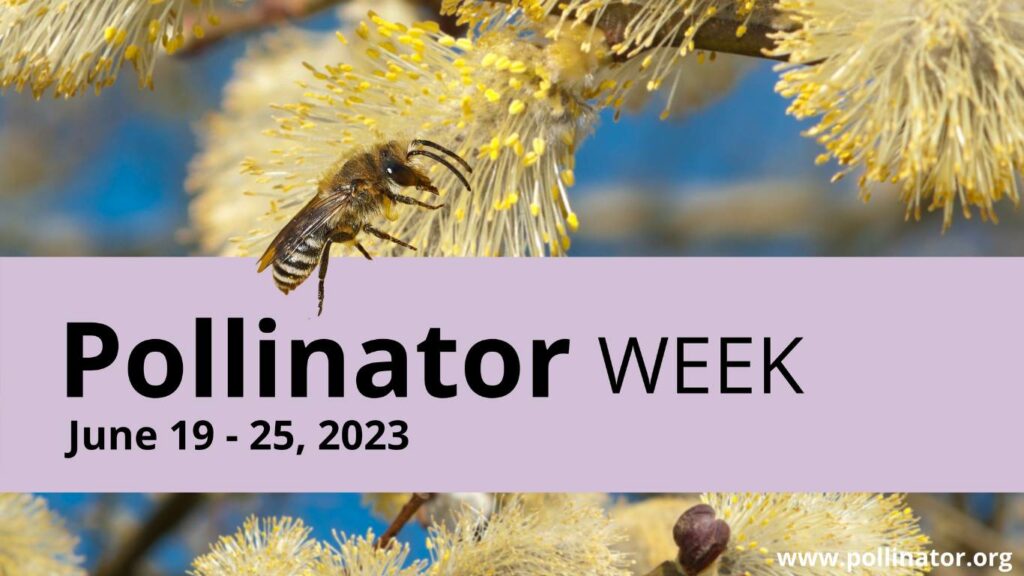
Source: https://pollinator.org/
More resources, guides, and information can be found at https://pollinator.org/
